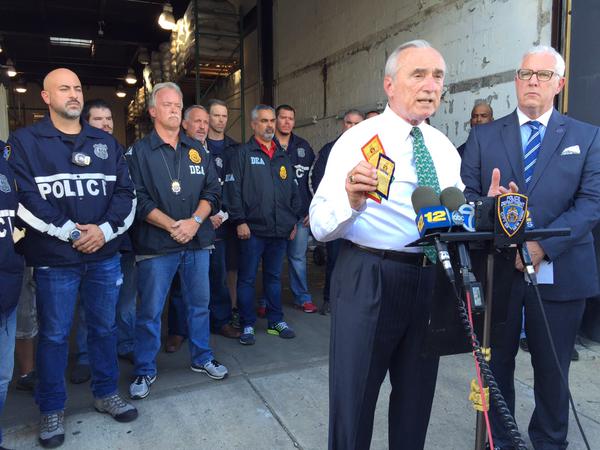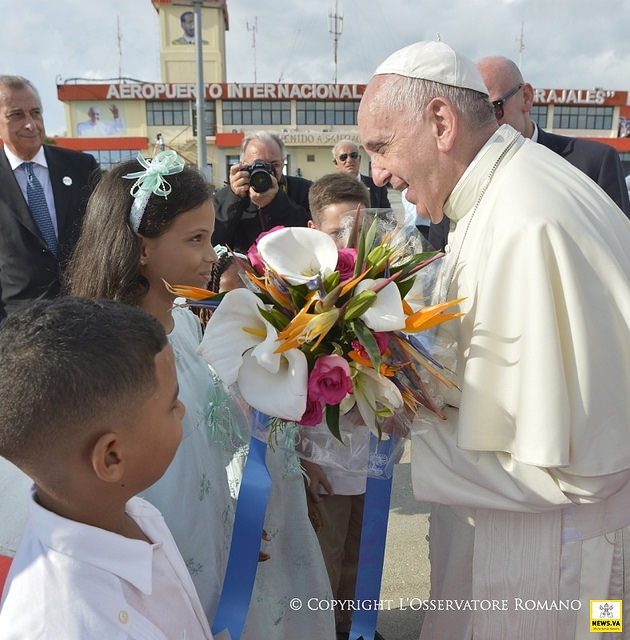Renew the Land and Water Conservation Fund for the Benefit of all New Yorkers

(photo: @PTNY)
What do Manhattan's Riverbank State Park track, the playgrounds of P.S. 40, 100, 140, and 192, Clay Pit Ponds State Park, the Rockaway and Coney Island Boardwalks, and Battery Park all have in common?
All were established or built through funding from the national Land and Water Conservation Fund (LWCF). Nearly all New Yorkers have benefitted in some way from the LWCF's innovative conservation projects.
For over 50 years, the LWCF has protected, renovated, updated, and improved New York's parks and greenspaces for the benefit of New Yorkers. This conservation fund is much more than a rural land purchasing program. The LWCF has funded approximately $44 million worth of projects in New York City alone over the past half century.
Despite the undeniable success of the LWCF, the fund will expire on September 30 if Congress does not pass legislation to reauthorize it. Over its entire history, the LWCF has never once lapsed in authorization. The 114th Congress should not allow a lapse in the LWCF to be a part of its legacy.
Established under President Lyndon B. Johnson in 1965, the LWCF began as an innovative way to acquire or develop recreational resources for a growing American population. Upon signing the bill (the same day he signed the Wilderness Act into law), President Johnson called the LWCF a responsible way to "acquire on a pay-as-you-go basis the outdoor recreation lands that tomorrow's Americans will require."
The LWCF has given New Yorkers city and school playgrounds, pools, park roads and restrooms, ballfields, and bandstands in all five boroughs. The LWCF's redevelopment of park and playground facilities maintains recreation infrastructure to ensure it is safe for all of New York's children.
LWCF funding has also allowed for the acquisition of new greenspaces – a significant challenge in a city as dense as New York. LWCF moneys funded the purchase of land that is now Roberto Clemente State Park in the Bronx, as well as the small but important floodplains of Udall's Cove and Ravine in Queens.
New parkland acquisitions like these ensure that New York City has green infrastructure that improves resiliency in the face of severe storms, floods, and rising sea levels.
The LWCF is rightly characterized as America's most important conservation program. The LWCF is unique in its flexibility and results, but more important it is unique in structure and purpose: it uses no taxpayer funds, but rather is funded through a small percentage of revenue from oil and gas leases that allow drilling of publicly-owned resources on the Outer Continental Shelf. The LWCF is a grand bargain between resource extraction and resource protection, struck on behalf of the American people, and one that they overwhelmingly support.
Reauthorizing the LWCF is a no-brainer for New Yorkers, since it costs them nothing. Continuing to fund the LWCF is a bipartisan issue that all New Yorkers can get behind. We can continue to fund our playgrounds, ballfields, and green infrastructure without reinventing the wheel legislatively. Congress simply needs to reauthorize the LWCF and allow it to begin a new half century of conservation success.
***
by Robin Dropkin, Executive Director, Parks & Trails New York. On Twitter @PTNY.
***
Have an op-ed idea or submission for Gotham Gazette? E-mail editor Ben Max: This email address is being protected from spambots. You need JavaScript enabled to view it.
Time for Real Reform to Curb Police Brutality

Commissioner Bratton (photo: @NYPDnews)
James Blake's treatment by NYPD officer James Frascatore was appalling, and only reinforces the need for substantive reforms that have yet to be acted on by Mayor de Blasio, Commissioner Bratton, and the New York City Council.
While the incident may have been shocking to some, it was unsurprising to those of us living in black and Latino neighborhoods throughout our city. And if it hadn't happened to a tennis celebrity with a Harvard pedigree, it may have never come to public light, with Officer Frascatore spared the same scrutiny.
For those of us working towards constructive changes that eliminate police abuse and brutality, James Blake was sadly just the latest incident of police brutality.
The reality is that some officers too often abuse the power they wield in communities. Whether it's excessive use of force, violation of basic rights, or disrespectful conduct, these transgressions occur on a regular basis.
Yet, the mayor and police commissioner have balked at addressing the issue of abusive policing head on with action, while paying some rhetorical service redirecting public attention from real accountability.
Neither their vague neighborhood-policing plan – without comprehensive community engagement – nor their commitment to provide new training to officers will address this systemic problem. Commissioner Bratton's latest announcement about enforcement of the NYPD's minor rules on officers also won't impact the failure to hold them accountable for violating their primary oath to protect and serve.
Until departmental policy and the fundamental nature of police-civilian encounters are changed, abuses will continue unchecked.
Beyond the New Yorkers, such as Eric Garner, who have been killed by police in an unjust or questionable manner during the two years of the de Blasio administration, many other troubling non-fatal incidents have come to light: the police officer who punched a teenager unconscious in Clinton Hill, the NYPD officer who shoved two women, one of whom was five-months pregnant, and the most recent piling on and punching of a man in a Brooklyn Target.
That's just a small sample of incidents known to the public.
The fact that Officer Frascatore is the subject of four lawsuits for excessive force during false arrests and five Civilian Complaint Review Board complaints in only four years in the department demonstrates that the problem isn't training or neighborhood policing; it's the lack of accountability for officers who conduct themselves in this way. Paid suspensions or moving someone around within the department is not enough.
Officer Daniel Pantaleo – who placed Eric Garner in a chokehold – similarly had provoked multiple lawsuits. As long as officers see no real consequence for conduct like this, we will not see change.
The problem is historic and systemic, which is why we called for Mayor de Blasio and Commissioner Bratton to implement zero tolerance for police brutality in our end of 2013 transition report, Safety & Civil Rights for All New Yorkers: The Mayor's First 100 Days. That would mean that there is no place in the NYPD for officers who brutalize civilians.
The fact that neither Frascatore nor any of the officers on the scene identified themselves as police or showed their badges speaks to a chronic problem that New Yorkers face when interacting with officers.
As Mr. Blake so aptly explained, had he actually defended himself from someone in plain clothes who never identified as law enforcement seemingly assaulting him, the incident could have escalated and he could have ended up seriously injured or worse.
There are solutions to these systemic problems. De Blasio and Bratton must get serious about police brutality by enacting a strict policy that removes officers who brutalize civilians from the department. The New York City Council must also pass the Right to Know Act, which would require officers to identify themselves to civilians and to explain the reason for law enforcement activity.
If Officer Frascatore had taken these simple steps, the whole despicable incident might have been avoided. And if these simple steps, or real consequences for not taking them, become law, other incidents like this can be avoided as well.
***
Winston-Griffith is the executive director of Brooklyn Movement Center, which is a member of Communities United for Police Reform.
***
Have an op-ed idea or submission for Gotham Gazette? E-mail editor Ben Max: This email address is being protected from spambots. You need JavaScript enabled to view it.
Pope Francis' Green New York

Pope Francis (photo via The Vatican on flickr)
Nothing Pope Francis does is by accident.
Read the schedule of the Pope's visit here and you'll see Pope Francis' view of New York City as a home to millions and a seat of international influence. In addition to connecting personally with New Yorkers, he'll leverage New York's status as an iconic global city to reinforce his papal priorities: climate change and poverty.
The People's Pontiff will visit an East Harlem grade school that is teaching students to be stewards of the earth. He'll greet thousands of New Yorkers in a drive through Central Park, New York's green heart where 400,000 people took their first steps in the largest-ever march for climate action. And he'll deliver the opening speech at the United Nations' Summit on Sustainable Development Goals, where world leaders will try to ramp-up global efforts to ensure that poor nations are lifted up and our resources and planet are protected through investing in renewable energy.
The Pope's visit to New York comes almost exactly on the anniversary of the historic 2014 People's Climate March, which transformed the way the American public, lawmakers, and world leaders understand climate change. No longer an abstract scientific phenomenon, climate change became an immediate threat to our people and our children.
World leaders jolted to action. In the year since the march, countries have been working diligently to reach an international climate agreement curbing the planet's dangerous warming. The United States and China agreed to reduce the carbon emissions that are driving climate change. President Obama announced limits on pollution from power plants and drilling. New York State mapped out a plan to get halve our energy from renewable sources within 15 years, and New York City committed to reduce greenhouse gas emissions by 80 percent in the next 15 years.
We've continued the momentum of the march by organizing the People's Climate Movement. Strengthening the ties between labor, faith, indigenous, and green groups, we're holding a National Day of Action on October 14. It will be an opportunity for those who have heard the Pope's call to push for big, meaningful solutions - like a global climate deal in Paris in December.
Pope Francis deepened the global climate policy discussion, penning an Encyclical articulating the moral crisis of climate change - that the poorest countries and communities who have contributed the least to climate change are the most vulnerable to its most dangerous effects.
The evidence is in the communities that have yet to recover from Hurricane Katrina and Superstorm Sandy, the high rates of asthma in the South Bronx, the Native Alaskan villages that are sinking into the once-frozen Arctic Ocean, and the farmers in California's Central Valley whose fields are parched to the point of cracking, to name only a few.
Pope Francis speaks about interconnectedness and brotherhood. Seemingly divided by political boundaries, we are connected by the natural world. We are not separated by oceans - there is no greater unifying challenge than rising seas.
Pope Francis is using the world's brightest spotlight to lift up the lives of people threatened by climate change, and to hold institutions accountable to their responsibilities. Long after His Holiness' visit, we'll be working to realize the changes he calls for here in New York, and across the country. We can get it done, but it won't be a walk in the park.
***
Eddie Bautista is the Executive Director of the NYC Environmental Justice Alliance and an organizer of the People's Climate Movement.
***
Have an op-ed idea or submission for Gotham Gazette? E-mail editor Ben Max: This email address is being protected from spambots. You need JavaScript enabled to view it.




